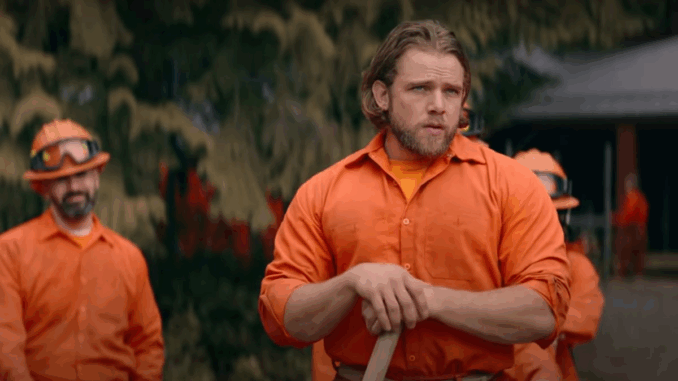
When Max Thieriot first stepped into the fireproof boots of Bode Donovan, he wasn’t just playing a role—he was rewriting what a television hero could look like. Fire Country, the CBS drama he co-created and stars in, is more than a series about firemen and convicts; it’s a bold character study rooted in redemption, raw emotion, and real-life resonance.
In this article, we explore how Max Thieriot’s unconventional portrayal of Bode has challenged stereotypes and redefined the landscape of prime-time heroes.
From Villain to Redeemer: A Nuanced Character Arc
Bode Donovan doesn’t begin as a hero. He enters the screen wearing a prison jumpsuit, weighed down by past mistakes and emotional baggage. What sets Bode apart is how Thieriot breathes life into his moral ambiguity. He isn’t perfect—he’s human. Flawed. Reactionary. Impulsive.
And that’s precisely what makes him compelling.
Thieriot doesn’t ask viewers to forgive Bode blindly. Instead, he invites us into his turmoil: the guilt over his sister’s death, the estrangement from his family, the desperate need to prove he’s more than the sum of his failures. Every decision Bode makes—whether noble or reckless—feels earned.
Real Fire, Real Stakes: Thieriot’s Commitment to Authenticity
Max Thieriot’s upbringing in Northern California, a region plagued by devastating wildfires, has deeply influenced the DNA of Fire Country. The show isn’t a glossy dramatization—it’s grounded in the very real world of Cal Fire and the inmate firefighter program.
From smoke-filled rescues to blistering heatwaves, Thieriot ensures the fire sequences ring true. But authenticity extends beyond the action. The emotional stakes are just as real, portraying what it means to face death daily while wrestling with internal infernos.

Building a Hero from the Ashes
Bode’s arc is about something few dramas tackle with honesty: slow, painful redemption. Thieriot’s portrayal never sugarcoats Bode’s flaws. He relapses emotionally. He pushes people away. He backslides. But each stumble only reinforces his humanity.
Through Bode, Thieriot paints a picture of a man rebuilding himself brick by brick, mistake by mistake. It’s messy, but it’s moving. And it’s a testament to Thieriot’s refusal to play it safe.
A Masculinity Rooted in Vulnerability
In Fire Country, strength isn’t defined by stoicism or bravado—it’s defined by vulnerability. Thieriot’s Bode cries, apologizes, seeks connection, and admits weakness. He redefines what it means to be a strong male lead on television.
This portrayal resonates in an era when audiences crave authenticity over archetype. Max Thieriot offers not just a new kind of firefighter, but a new kind of man.
Conclusion: Max Thieriot Is Rewriting the Hero’s Journey
With Fire Country, Max Thieriot hasn’t just created a hit show—he’s redefined the parameters of network television. By crafting a flawed, tender, and fiercely resilient protagonist, he’s inviting audiences to root for something greater than action.
He’s asking us to believe in redemption.
